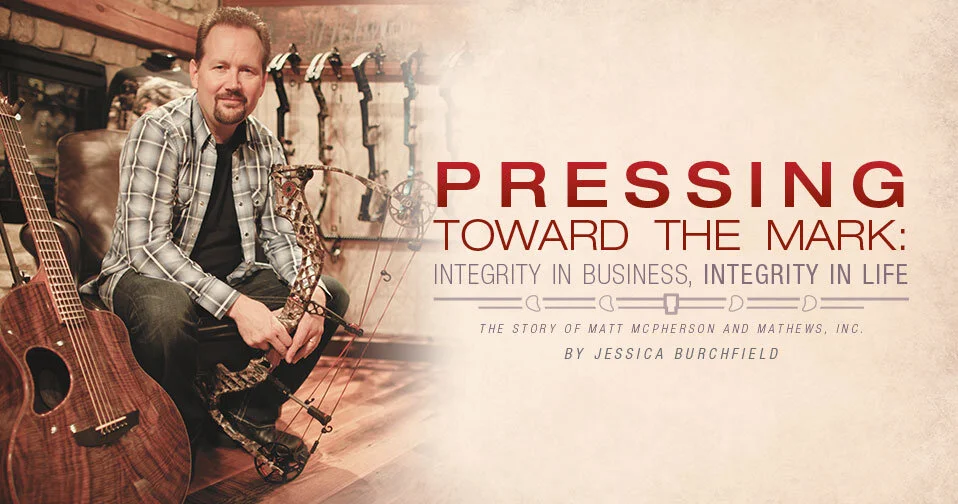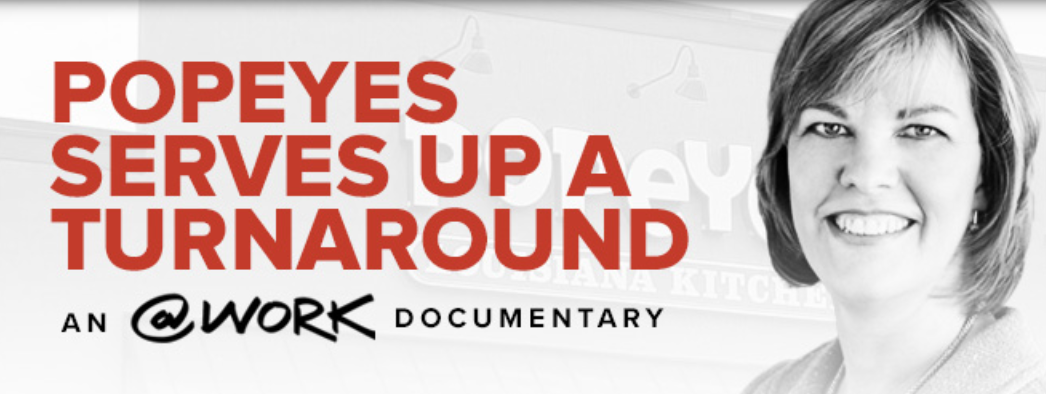In Leaving a Major Label, Faith-Based Rapper Lecrae Embraces the Spirit of Independence Along with Spirituality
This article was originally published here by Variety
— by Variety
Lecrae Devaughn Moore — better known simply as Lecrae — has always valued his independence. The Atlanta-based hip-hop recording artist and producer — who says “I am a hip-hop artist who happens to be Christian, believes in God, and follows the teachings of Jesus,” although he prefers not to be called a “Christian rapper”” — co-founded his independent record label, Reach Records, when he began dropping solo albums with 2004’s “Real Talk.” He maintained that autonomy up through 2014, when he entered a joint venture with Columbia through Reach and released “All Things Work Together,” which yielded his first platinum single “I’ll Find You.” He was still affiliated with Columbia in March, when his new single, “Set Me Free,” was released right as the COVID-19 pandemic was taking hold. After a month and a half’s worth of silence and quarantine, Lecrae returns this week with news of a forthcoming album, “Restoration” — with guests such as John Legend and Kirk Franklin — and a return to real independence with it. The new album, due to be released sometime this summer, will be released solely on his Reach label, which also reissued the “Set Me Free” single independently this month, following the break with Columbia.
Variety caught up with Lecrae after Memorial Day to discuss his own personal independence day, as well as the responsibility of having an independent label at times of crisis and joy.
VARIETY: How has the quarantine been for you? It looks as if it’s been a busy one.
LECRAE: The initial phase was anxiety, bewilderment and discombobulation. Then it moved into embracing whatever new normal there was, finding a new rhythm. Now, we found a rhythm. It’s been challenging and yet refreshing. Plus, I’ve cooked more than I have, ever, during my lifetime.
You are a Christian man. During this time, some spiritually minded artists have claimed that COVID-19 was God’s way of saying we need to realign the planet. What’s your take?
I totally believe that when things are out of control, God is in control. All things work together for our good, if we know Him and trust Him. Obviously, I think there is something going on behind the scenes that is ultimately for our good. What that is, I can’t say. Is it possible that God is saying that we better take better care of the earth? Sure. But whether the coronavirus happened or not, we should be taking better care of the earth.
Talk about the health of your business. At the end of March, Columbia was sending out press releases about your new single. Here we are two months later, discussing your return, in full, to your Reach label. What happened during those eight weeks?
When you’re an independent artist, there’s a fluidity that you have, a nimbleness that allows you to react and respond quickly in the midst of chaotic circumstances. When you’re responsible for hundreds of artists, like Columbia, you cannot pivot quickly — especially during a crisis. There were pivots that needed to be made, responses that I wanted to execute toward things in society — like the homeless community and the prison community — and things I wanted to be involved in. Historically, my music has been an expression of that.
As a musical first responder.
I’m connected to issues of substance in society. When you find yourself in a position where you are chained due to the vision of a major label and you can’t move with nimbleness, you realize that you’ve got to do something different. I had a No. 1 album independently, so it wasn’t as if I didn’t believe in myself and my crew. I had nine other artists on the label and didn’t want to take away from their ability to produce. Since this new record (“Restoration”) was pretty much done, I didn’t see that there was much heavy lifting that my label couldn’t do on its own. We would be better suited (than Columbia) to move at the speed we need to move.
I want to release music when I want. People need this. When you’re part of a major, there are decisions such as having to release another artist’s single on the same day. Or you can’t talk to the label president because they are dealing with another artist’s situation. If I’m being 100% candid, when you have that many artists, there are simply other priorities that are not you. When you are an independent, you are your own priority. You don’t have to wait in line to make them see the value of who you are as an artist… Also I don’t have to wait to approved to do a feature or be a guest on somebody else’s record, where (with a major), by the time I get all the department heads to say yes, the moment is gone. Now I can do whatever I want.
Related articles
What does it look like to put God at the center of your business? When we see our workplace as an opportunity to bring hope and life to people that desperately need it, it changes everything. Our job is to live faithfully and obediently wherever He has placed us.
Let me introduce you to Tim. Tim was the ideal model for anyone asking how to be a great car salesman. And he exemplified the two traits I think all business people should have regardless of industry.
BAM is a relatively new term, but is based upon biblical concepts. The BAM concept is holistic in nature and content; it is built upon the truth that God has the power to transform people and communities spiritually, economically, socially, and environmentally.
God’s revelation of Himself to us in the Word isn’t an adapting of Himself to us, it is rather a revelation of who He is that includes a call for me to repent, believe and follow, by the work of the Holy Spirit.
This image of planes hurtling down a carrier’s swaying deck and launching into the open sky is precisely what graduation is all about.
The only WHY that can truly sustain work and ministry simultaneously is the only purpose for which we were created—to glorify God. And we glorify God by loving what God loves.
What if we could have healthy debates in which we first have to clearly articulate the position of the other side? What if we sought common ground—rather than standing our ground?
Christians in the business world have a dynamic opportunity to utilize this model and have far-reaching influence into the greater global culture. Business has an important role to play in shaping societies, communities, and households. In short, business and arts are callings that shape culture.
Imagine the possibilities if generations of entrepreneurs and scholars were deeply rooted both in their confidence to integration their faith in their work, and also in a community of believers who supported them in it!
Ministry in word is a foundational mark of the Faith Driven Entrepreneur. Here’s some inspiration for starting a workplace faith community.
So maybe you are headed toward starting the next unicorn company, but right now the Lord has you tending the flock. Maybe you’re called to serve the boss that’s got a temper, and while you know you’re next in line for his job, you honor his leadership in the waiting.
I have become convinced that humility is God's secret weapon to thwart the ultimate enemy of pride and bring pockets of heaven to earth. If I can focus on how Jesus must increase and I must decrease, then God will, without fail, use me for his purposes. Easier said than done.
You see, HOPE Coffee is a coffee company with a heart for missions. With roots as a ministry to coffee farmers and families who live in their communities, HOPE Coffee is devoted to meeting needs while sharing the hope of Jesus.
“Whatever you do, eating or drinking or anything else, everything should be done to bring glory to God.”
Lecrae Devaughn Moore — better known simply as Lecrae — has always valued his independence.
What if faith-driven entrepreneurs, not just in the U.S. but worldwide, went all-in to commit their creative talents and abilities to advance God’s kingdom and be the agents of change for justice, equality and eradication of poverty?
When God calls our name as leaders, He is not looking for a weak response of “I’m here”. He’s not interested in the bored or quiet “here” that we sometimes utter when we’re called upon to sound off in travel groups or classrooms. God is looking for us to say “Here I am” with gusto.
A modern day Christian Renaissance Man, Matt McPherson is the founder and CEO of both Mathews Inc., the largest bow manufacturer in the world, and McPherson Guitars, a leading name in the music industry for hand-crafted acoustic guitars
As Christians, we can’t say we are seeking to love our neighbor as ourselves and then do our work with mediocrity. Think of the extreme example of a Christian doctor.
God builds godly character in us by guiding and enabling us to choose righteousness throughout the years of our lives. The internal effect of godly character is that it reforms our mindset and our will.
Applying biblical principles to shape best practices in business may sound challenging or scandalously illegal, but it’s surprisingly achievable and worthwhile. And while this view of stewardship may seem to be an ethereal, fluid concept, ministry can be objectively measured with worthy metrics of success much like any other dimension of thriving business.
Watch how Todd Stewart, this 2nd generation CEO of a $160M logistics company, saw his faith transform his workplace culture to have employee engagement soar over 70% as they sought to honor Christ by how well they steward people.
When Cheryl Bachelder took the helm at Popeyes Louisiana Kitchen, sales and profits were declining and shareholders and franchisees were unhappy. Today, sales are up, profits are up, and Popeyes stock has leaped from $13 on Cheryl's first day on the job to consistently over $50 per share today. So what's the secret ingredient to Popeyes’ turnaround? RightNow Media presents an @ Work Documentary that looks at how Cheryl's unique strategy of servant leadership proved to be a recipe for success.
What does it mean for the “Kingdom of God,” or more contemporarily the “Jesus Administration”, to intersect the American Marketplace? What would it mean for followers of Jesus in the marketplace to embrace the scandalous invitation of the Lord’s Prayer in business? Using The C12 Group’s 5 Point Alignment Matrix, Mike Sharrow shares how business must be intentionally and lovingly integrated into faith that permeates our leadership development efforts as an organization.
From Seattle Pacific University's Faith & Co., this short business documentary profiles Victor Ho, who founded Fivestars with the mission of “transforming transactions into relationships.” When the start-up hit a rough patch and needed to lay off 50 people, Victor felt compelled to take an approach that was consistent with the company’s values: humbly admitting his mistakes, honoring the workers’ contributions, and mobilizing the entire firm to help those being displaced.
Fintech continues to advance rapidly, impacting people all over the world. Chris’s journey into fintech has taught him that whether we are engaging it as a user, a seller, or even a creator, Christians must approach this technology with self-control and surrender to the Lord. His journey begins with using fintech, to selling it, to finally creating it. His article was one of CEF’s 2019 White Papers.
In this video, we take a look at why Prime Trailer gives its employees an entire paid day off to go out and serve the needs they see in their community! CEO Wes Gardner encourages other business owners to let their people be themselves—to do what they’re excited about in their jobs and in their community.
In moments of crises, the core of who you are is fully exposed and the deeply embedded values of your culture take over. For Vermeer, 70 years of a biblically-based culture turned into action immediately after a tornado struck in 2018. Since then, they’ve celebrated a year of record sales and growth across their business. This article was one of CEF’s 2019 White Papers.
——
[Picture Courtesy Reach Records ]






























As believers and business leaders, the curious question of artificial intelligence (AI) is one facing each of us. In what ways should we embrace this generational revolution? In what ways should we reject it?